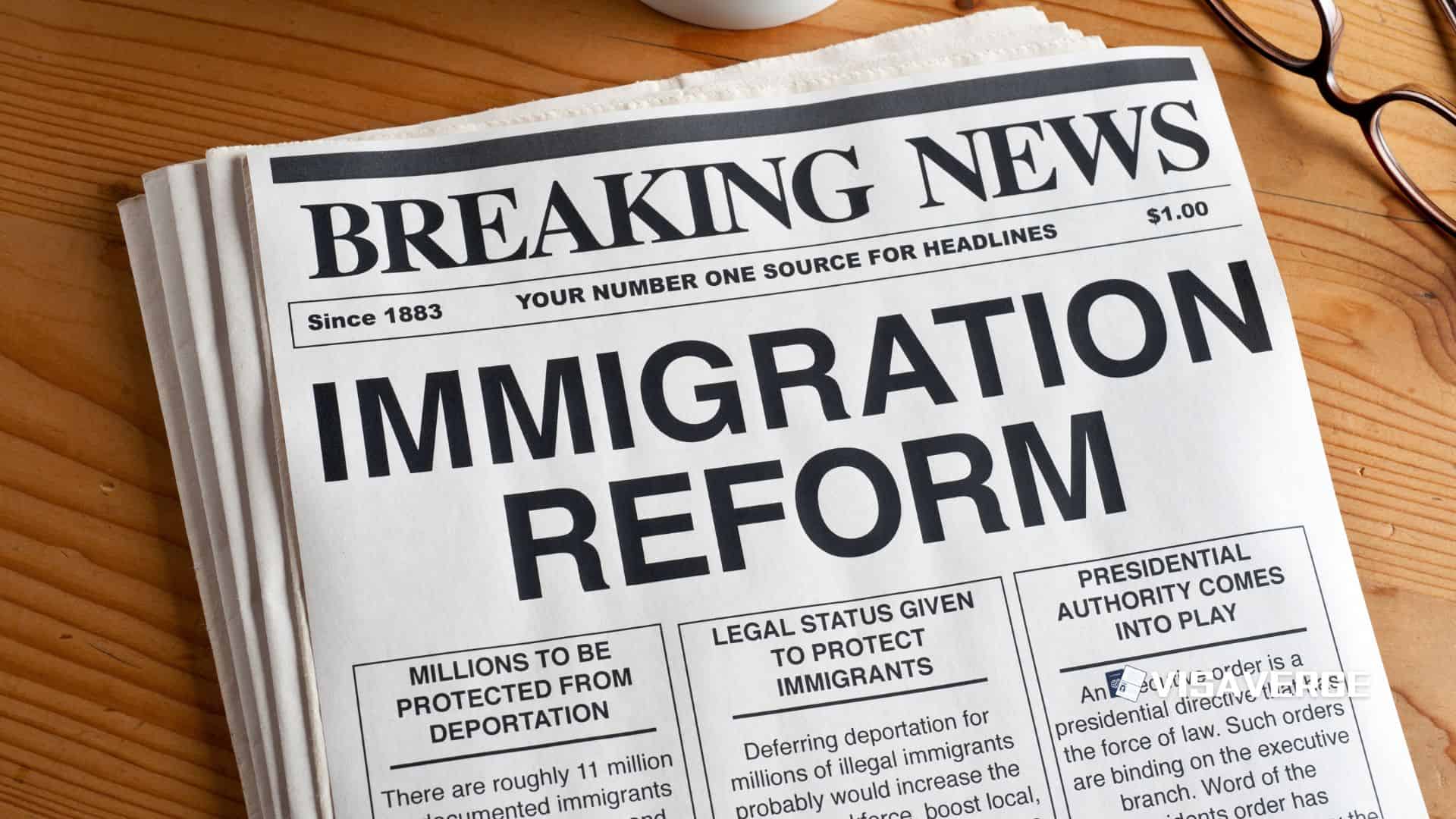Key Takeaways
• Canada set a 2024 target of 6% French-speaking immigrants outside Quebec, aiming for 10% by 2027.
• Express Entry now prioritizes candidates with strong French-language skills, awarding 25% of invitations to Francophone applicants in 2024.
• New IRCC programs, like FCIP, focus on supporting French-speaking communities outside Quebec with targeted settlement and job pathways.
Canada’s immigration policy has shifted in a big way, putting a strong focus on bringing more French-speaking people into the country, especially outside Quebec. Immigration, Refugees and Citizenship Canada (IRCC) is leading this effort with new policies and programs. The goal is to help French-speaking minority communities grow and thrive, even while the total number of immigrants coming to Canada 🇨🇦 is being reduced. In this article, we break down what this change means, why it’s happening, which communities are involved, and how it may affect Canadians, newcomers, and employers.
Why Francophone Immigration Is a Priority

Keeping French-speaking communities healthy is important for Canada 🇨🇦. While most French speakers live in Quebec, there are vibrant groups across the country that speak French as their first language. Over the past fifty years, the number of Francophones living outside Quebec has dropped a lot. In 1971, they made up 6.1% of the population outside Quebec; by 2021, that number fell to 3.5%. If nothing changes, it’s expected to slip to 3% by 2036.
This drop is happening for several reasons:
- Fewer children are being born in French-speaking families.
– Many Francophones move to other provinces or parts of Canada 🇨🇦. - Immigration has mainly brought in people who speak languages other than French.
- Some French speakers start using English in daily life, especially when living in mostly English-speaking areas.
IRCC sees these challenges as serious. If steps aren’t taken now, the rich traditions, language, and culture of these French-speaking minority groups may fade away. As reported by VisaVerge.com, this is not just a matter of language—it’s about keeping unique parts of Canada 🇨🇦 alive and ensuring communities have what they need to succeed.
The New Policy and Its Ambitious Targets
In 2024, IRCC created the Policy on Francophone Immigration, making it a major part of their work for the future. This is a clear signal: helping French-speaking minority communities is now a permanent priority. The aim is to restore the size of these communities to where it was years ago and to do this in a fair way that treats everyone equally.
The government has set clear targets for how many permanent residents should be French-speaking and living outside Quebec. These targets are going up each year, even while the total number of people allowed to move to Canada 🇨🇦 goes down. Here’s how the targets look:
- 2023: Aim was 4.4%. IRCC did better than this, reaching 4.7% and welcoming more than 19,600 French-speaking permanent residents.
- 2024: Aim is 6% (26,100 newcomers).
- 2025: The goal climbs to 8.5%.
- 2026: The bar rises to 9.5%.
- 2027: The target peaks at 10%.
This means that, step by step, more of the people who become permanent residents outside Quebec will be French-speaking. IRCC is not waiting for things to get worse—they are acting now to help these communities grow again.
Key Ways IRCC Is Reaching These Goals
To meet these goals, IRCC is rolling out special programs, making it easier for French-speaking people to come to Canada 🇨🇦 and for Canadian employers to hire them. Below, we explain the main ways this is happening.
1. Express Entry Prioritization
Express Entry is the main system Canada 🇨🇦 uses to let skilled workers apply to live permanently in the country. In 2024 (from January to October), French speakers got a boost: 22,870 Invitations to Apply (that’s 25% of all invitations) went to people who had strong French-language skills. This is a big change from earlier years, when knowing French was helpful but not a key selection factor. Now, if you speak French well, you are much more likely to be invited to apply for permanent residence.
2. Dedicated Immigration Pathways
For those who want to move to communities outside Quebec, IRCC has designed special programs just for French-speaking newcomers:
- Francophone Community Immigration Pilot (FCIP): Starting in January 2025, this new program offers a path for people with intermediate French who have a job offer in certain jobs, in certain communities. It’s open to those who don’t already live in Quebec. This is aimed at bringing skilled workers right into places that need them most.
- Francophone Minority Communities Student Pilot: Launched in August 2024, this will help French-speaking students come to Canada 🇨🇦, stay, and build their futures.
-
Francophone Mobility Program Expansion: In June 2023, the program was widened for two years. Now, Canadian employers can offer jobs to those with moderate French language skills, covering most kinds of work. This makes it much easier to hire French-speaking workers from abroad.
3. Community Support Programs
Integrating into a new country can be hard, especially if you’re in the minority language group. To help with this, IRCC funds the Francophone Immigration Support Program (FISP). This program gives money in three important ways:
- To joint projects that help pick the right immigrants for these communities.
- To promote French-speaking minority communities in other countries so people know there are opportunities in Canada 🇨🇦.
- To fund research on unfair barriers that might make immigration harder for French speakers.
There’s also a Center for Innovation in Francophone Immigration in Dieppe. It leads FISP and helps come up with new ideas for better policy and programs. Fourteen communities across Canada 🇨🇦 get special funding to help welcome and settle French-speaking newcomers, and there are plans to add up to ten more.
Selected Communities for the FCIP
Some places have been picked to take part in the Francophone Community Immigration Pilot. These are areas outside Quebec that have both need and a French-speaking base to build upon. Here’s the list:
- Acadian Peninsula, New Brunswick
- Sudbury, Ontario
- Timmins, Ontario
- Superior East Region, Ontario
- St. Pierre Jolys, Manitoba
- Kelowna, British Columbia
Of these, Acadian Peninsula, Sudbury, Timmins, and St. Pierre Jolys are also in the Welcoming Francophone Communities Initiative, which means they already have programs and support for French-speaking newcomers.
Why This Matters: Culture, Economics, and Community Strength
The efforts by IRCC to boost Francophone immigration are about more than numbers. It’s about keeping French a living language in all parts of Canada 🇨🇦 and helping regions stay unique and vibrant.
But it’s also about money and jobs. Many areas outside Quebec need skilled workers. By attracting French-speaking newcomers, IRCC hopes to:
- Lower the number of jobs that go unfilled
- Bring new energy and ideas into struggling areas
- Help local economies grow
These policies follow the values set out in Canada’s Official Languages Act, which requires the federal government to protect and support both English and French across the country. With these changes, Canada 🇨🇦 shows it is serious about treating French as equal to English, no matter where people live.
Challenges and Differing Views
While many people see these programs as important, there are some questions and concerns. Some worry that with the overall number of newcomers going down, other language groups might be left out. Others think the targets may be hard to reach, especially in places where French-speaking communities are very small.
There is also the challenge of making sure both newcomers and long-time residents feel included and supported. For example:
- Language Barriers: Not everyone in these communities speaks French, so helping people mix and understand each other is important.
- Job Matches: Finding the right jobs for newcomers takes teamwork between employers, immigration officials, and communities.
- Integration Support: Schools, health care, and community groups need to be ready to welcome newcomers and help them get settled.
Analysis from VisaVerge.com suggests that careful planning and good communication will be key to making sure these programs work for everyone.
The Broader Context
Canada 🇨🇦 is seen by many as a leader in welcoming immigrants. Its approach to Francophone immigration fits this tradition but also responds to real problems. Outside Quebec, the French-speaking minority faces losing its influence and traditions unless more people join and stay in these communities.
Internationally, this push for French-speaking immigrants can also help Canada 🇨🇦 build stronger connections with other countries where French is spoken, like France 🇫🇷, Belgium 🇧🇪, or several African nations. This can create new chances for trade, friendship, and cultural exchange.
Immediate and Long-term Impact
For newcomers, these changes mean more paths to living and working in Canada 🇨🇦 if they can speak French. For employers, it’s easier to fill important jobs, especially in health care, teaching, and skilled trades. For French-speaking communities, the hope is for a more secure future with fresh faces, new families, and renewed strength.
In the long run, stronger French-speaking communities outside Quebec may help keep Canada 🇨🇦 bilingual and unique. If the programs work, kids will be able to go to French schools, businesses will find it easier to hire bilingual workers, and cultural events will continue far from Quebec.
Looking Ahead: Next Steps for Interested Applicants
If you are interested in these programs—as a French-speaking newcomer, a community, or as an employer—the best place to start is the official IRCC website. You can find full details about eligibility, application steps, and important deadlines on the IRCC’s official pages for Francophone immigration.
To sum up, IRCC’s push for more Francophone immigration marks a big shift in how Canada 🇨🇦 handles immigration policy. This change is designed to help preserve French-speaking minority communities while also making it easier for skilled newcomers to build lives and careers outside Quebec. Over the next few years, we will see if these ambitious targets are reached and if French-speaking communities grow stronger across the country. The whole country, including businesses and communities, will be watching closely to see how these programs shape the future.
For anyone thinking about moving to Canada 🇨🇦, or for communities looking to grow, now is the time to pay close attention to these policy changes. They offer new hope and opportunities for French speakers who want to help build Canada’s future, not just in Quebec—but everywhere French-speaking minority groups call home.
Learn Today
IRCC → Immigration, Refugees and Citizenship Canada, the agency responsible for immigration policy, processes, and integration programs in Canada.
Francophone Community Immigration Pilot (FCIP) → A new program starting January 2025 offering French-speaking workers job-based immigration pathways in selected communities outside Quebec.
Express Entry → Canada’s primary online system for selecting skilled immigrants to become permanent residents based on language, skills, and job prospects.
Francophone Immigration Support Program (FISP) → An IRCC-funded initiative supporting projects that recruit, promote, and integrate French-speaking newcomers outside Quebec.
Official Languages Act → Canadian federal law requiring equal promotion and protection of English and French languages across all regions of the country.
This Article in a Nutshell
Canada’s immigration policy now prioritizes French-speaking immigrants outside Quebec. Annual targets are rising, despite overall immigration reductions. Express Entry favors strong French skills, and dedicated programs including the FCIP and expanded community supports aim to revitalize Francophone communities nationwide, preserving culture, language, and ensuring economic growth for the future.
— By VisaVerge.com
Read more:
• Francophone Community Immigration Class: New Pathway for French Speakers in Canada
• Canada Immigration Pilot for Francophone Students
• New Brunswick Welcomes Internationally-Trained Francophone Nurses
• New Immigration Pilots for Rural and Francophone Minorities Announced by IRCC
• New Francophone Immigration Policy and Integration Initiatives Announced in Canada













